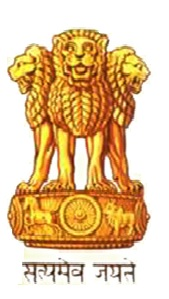
Permanent Mission of India
Geneva
Ambassador Ajit Kumar making the opening remarks at the event commemorating the
2nd Constitution Day of India - 26.11.2016
Prof. Isabelle Milbert,
PR (CD),
DPR (UN), Acting PR (WTO), CG,
Distinguished guests,
Students from Graduate Institute, Colleagues and Friends,
It is my privilege to welcome you all this evening to commemorate 26 November as Constitution Day of India. On this day in 1949, the Constituent Assembly of India adopted the Constitution of India, and it went into effect on 26 January 1950. This date saw the culmination of the non-violent struggle of an extraordinary generation of Indian leaders to establish the foundation of the world’s largest democracy.
The Government of India is also organising the Constitution Day celebrations to mark the 125th birth anniversary of Baba Saheb Dr. Bhimrao Ambedkar, the legal icon, who played a seminal role in the framing of Indian Constitution as the Chairman of the Drafting Committee of the Constituent Assembly.
When India drew up its Constitution, where my father was a Member of the Constituent Assembly, subjects such as fundamental rights, directive principles of state, abolition of untouchability, rights for the under privileged and marginalized were all inspired by Gandhian thoughts and values. Constitution of India is the bedrock of the world’s largest democracy. It has also stood the test of time.
Friends,
To recollect some of the great moments of the Constituent Assembly, you may all aware of the fact that the Indian Constitution has been drafted after an intense debate that lasted over three years. Indian Constitution is one of the lengthiest Constitutions in the world. In an attempt to address the growing social, political and economic concerns of the society at large, the Constitution of India has undergone many changes time and again. Today the Constitution of India reflects a blend of rigid and flexible character of Indian Constitution.
It is also relevant to recall that India was a nascent country at the time the drafting exercise was taken up. Indian Constitution is the eventual outcome of a vision and intellectual ability of great leaders of the time including: Pandit Nehru, Dr. Rajendra Prasad, Dr. Ambedkar and Justice Alladi Krishnaswami Aiyyar, to name a few, who were all part of the historic draft.
Friends,
The core values of India as a country are enshrined in the Preamble of the Constitution. It lays down the objectives of the Constitution such as to provide Liberty, Equality and Justice to all citizens, and to promote among them all fraternity, assuring the dignity of the individual and unity and integrity of the nation. It also states about the nature of the state which is Sovereign, Socialist, Secular, and Democratic Republic. Preamble sets a goal, provide a vision and direction in building a new social order which is not only democratic but also equal and just. Thus Indian constitution is based on the philosophy of humane, secular and liberal welfare democratic society.
Constitution of India gives a detailed description on a charter of rights called the ‘Fundamental Rights' which are exhaustive. These rights are fundamental in nature and comprise of several basic human freedoms that provide every citizen of India a right to live in peace and harmony. These rights address the socio-political necessity of the country that include the ability to speak freely and express oneself; the freedom of conscience and to profess, practise, and even propagate a religion with various cultural guarantees. Indian Constitution stands astute from other Constitutions of the world as it not only provides the basic rights to all its citizens but also guarantees them with sufficient safeguards.
Indian Constitution imposes positive obligations on the state to strive for world peace and also to ensure social and economic democracy towards its citizens which was secured by the provisions of fundamental rights. These are called Directive Principles of State Policy. Dr. Ambedkar called Directive Principles as ‘instruments of instructions’ to the legislature and the executive…as to how they should exercise their power. Indian Constitution provides for parliamentary form of government as this alone can usher in an egalitarian society through the application of the principles of social democracy.
Friends,
The notable feature of Indian Constitution is that it takes into consideration the enormous diversity of India that warrants devolution of powers. The rich diversity of the country impelled the framers of Indian Constitution to opt for a federal policy that could ensure unity, while assuring autonomy of states in matters of local importance. However, interestingly, the term ‘federation’ has not been used anywhere in the Constitution. Without saying so, the Constitution of India devises a new federalism that meets India’s unique needs, whereby the units of Indian federation, though do not have any independent existence of their own, are not subordinate to the Union. This system brings an end to excessively centralised system of governance, which prevailed for more than two hundred years during the colonial rule.
India, the largest democratic country in the world also believes in independence of judiciary. Constitution of India recognises this core principle and provides for devices that guarantee judicial independence to ensure judiciary as an organ free from influence and control of other two organs of the Government, i.e., legislature and executive. A nation would achieve its stability and prosperity only when the rights of its citizens are well protected.
Friends,
In conclusion, it is my honour and privilege to share some of the core principles of Indian Constitution with you all on this Constitution Day. Celebrating the Constitution Day is indeed a great tribute to Dr. Ambedkar, chief architect of Indian Constitution, and other great leaders of our country whose untiring efforts proclaimed India as a sovereign republic. Constitution Day signifies one of the most important achievements in the modern history of India.
In the words of Dr. Ambedkar…
"Constitution is not a mere lawyer’s document, it is a vehicle of Life, and its spirit is always the spirit of Age."
I Thank you.
*******













